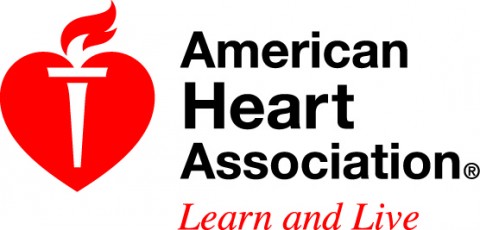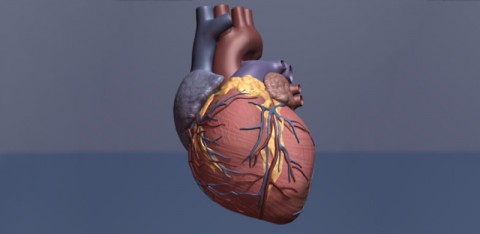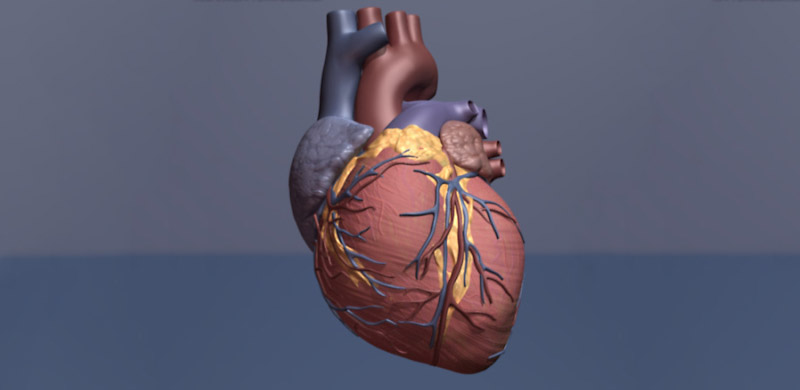 Dallas, TX – The age at which cancer survivors were diagnosed for cancer may help determine their risk of death from heart disease, according to new research in the American Heart Association’s journal Circulation.
Dallas, TX – The age at which cancer survivors were diagnosed for cancer may help determine their risk of death from heart disease, according to new research in the American Heart Association’s journal Circulation.
Heart disease has been known to be the leading cause of treatment-related, non-tumor deaths among survivors of childhood cancer, breast cancer and Hodgkin lymphoma.

As of now, the risk of cardiac mortality has not been investigated comprehensively within a large population of teenage and young adult cancer survivors, researchers say.
The United Kingdom-based study consisted of more than 200,000 survivors diagnosed with cancer from ages 15 to 39 who survived at least five years after being diagnosed.
Researchers examined data from these survivors and found
- Six percent of deaths were caused by heart disease.
- Cancer survivors diagnosed at ages 15 to 19 had 4.2 times higher risk of death from heart disease compared to the general population of similar age and gender.
- Survivors who were 35 to 39 years old at cancer diagnosis had 1.2 times higher risk of death from heart disease compared to the general population of similar age and gender.
“It is important for clinicians because it helps them focus the most intensive follow-up care on those most at risk,” said Mike Hawkins, D.Phil., study senior author, epidemiology professor and director of the Centre for Childhood Cancer Survivor Studies at the University of Birmingham in England. “It is important for survivors because it empowers them by providing them with their long-term chances of a specific side effect of cancer treatment.”
The significance of age at diagnosis was most apparent for survivors of Hodgkin lymphoma – cancer of the lymphatic system. 6.9 percent of survivors who were diagnosed with Hodgkin lymphoma at ages 15-19 had died of heart disease by age 55 years compared to two percent of those diagnosed at ages 35-39. Given their age and gender less than one percent of these survivors would have been expected to die from general population rates.
Survivors of Hodgkin lymphoma experienced 3.8 times the risk of death from heart disease than expected from members of the general population of similar age and gender. Among survivors of Hodgkin’s lymphoma aged over 60 years, almost 28 percent of the total excess number of deaths observed were due to heart disease.
Survivors of other types of cancer also had a higher than expected risk of death from heart disease including: leukemia, genitourinary cancer, lung cancer, breast cancer, and others.
This new research provides insight into the cardiotoxicity of cancer treatments given in the past to teenagers and young adults – a growing topic of focus in medical circles related to cancer treatment. However, researchers noted the study lacks detailed information on exposure to cancer treatments: radiotherapy and chemotherapy.
Participants were part of The Teenage and Young Adult Cancer Survivor Study of 200,945 cancer survivors diagnosed in England and Wales from 1971 to 2006 and followed to 2014.
Co-authors are Katherine Henson, D.Phil; Raoul Reulen, Ph.D.; David Winter, H.N.C.; Chloe Bright, M.Sc.; Miranda Fidler, Ph.D.; Clare Frobisher, Ph.D.; Joyeeta Guha, Ph.D.; Kwok Wong, Ph.D.; Julie Kelly; Angela Edgar, M.D.; Martin McCabe, M.D., Ph.D.; Jeremy Whelan, M.D., F.R.C.P., M.B.B.S.; David Cutter, D.Phil; and Sarah Darby, Ph.D. Author disclosures are on the manuscript.
Cancer Research U.K., the National Institute for Health Research, Department of Health Policy Research Programme, Nuffield Department of Population Health, Clinical Trial Service Unit and British Heart Foundation Centre for Research Excellence funded the study.
Additional Resources
- View the manuscript online.
- Follow AHA/ASA news on Twitter @HeartNews.
- For updates and new science from the Circulation journal follow @CircAHA.
- Subscribe to the Circulation on the Run iTunes podcast – a weekly overview of the issue’s contents for the busy clinician.



